Pool Filter Mistakes To Stop Making Right Away
Maintaining a crystal-clear pool is as enjoyable as it is a responsibility. One of the cornerstones of doing this effectively lies in the proper care and understanding of your pool's filter system. Yet, even the most diligent pool owners can inadvertently make errors that can lead to murky waters and problematic pool conditions. In this post, we will explore key mistakes pool owners need to sidestep when it comes to the filter. By the end, you should be well-equipped to keep your pool pristine, avoid needless repairs, and ensure a healthful swim experience.
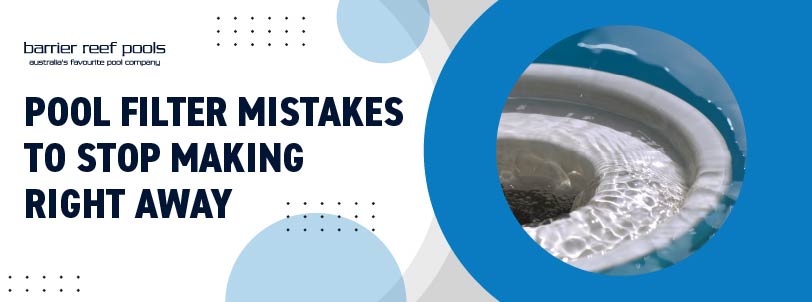
Common Pool Filter Mistakes
Using the Wrong Type of Filter for Your Pool
Not all filters are created equal—and not every filter is suitable for every pool. The three most common types are sand, cartridge, and diatomaceous earth (DE). Each has its own pros and cons, and they cater to different needs in terms of filter size, maintenance level, and type of debris commonly encountered. For instance, sand filters are generally affordable and easy to maintain but might not capture the smallest particles. Cartridge filters, on the other hand, provide finer filtration and require less water for cleaning, but they can be more expensive and need to be replaced more frequently. Diatomaceous earth filters offer the highest level of filtration, capturing even the tiniest particles, but they are the most costly and require more intensive maintenance.
Selecting a filter that doesn’t match your pool’s requirements can lead to inefficient filtration, impurities in the water, and ultimately, higher maintenance costs and potential damage to your pool system. Therefore, it’s crucial to carefully assess your pool’s specific needs and choose a filter that will provide the best performance and value.
Neglecting Routine Filter Maintenance
Ignoring the filter’s cries for help could lead to dire consequences. Without regular checks and maintenance, a filter’s efficiency decays. This gradual decline means it fails to remove debris and contaminants effectively. The result? Poor water circulation, decreased filtration capability, and ultimately, an unhealthy pool environment that could endanger your pool’s ecosystem and those who enjoy it. In the worst cases, this neglect can lead to algae growth, bacteria buildup, and the need for costly repairs or even complete replacement of the filtration system. Regular maintenance is crucial to ensure the longevity and cleanliness of your pool, providing a safe and enjoyable space for everyone.
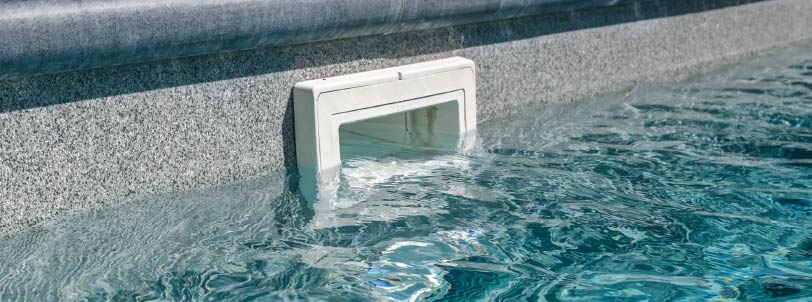
Overlooking the Filter’s Pressure Gauge
The pressure gauge is not just a passive observer; it’s a crucial indicator of the pool filter’s condition. When it shows a high reading, it could signal a clog or the need for backwashing due to excessive dirt and debris buildup. Conversely, a low reading might suggest a leak, an air pocket, or a blockage somewhere in the system. Regularly monitoring and interpreting these readings is essential for maintaining optimal pool health. Ignoring these vital signs can lead to significant issues, turning a minor maintenance activity into a costly and time-consuming pool disaster. Understanding what your pressure gauge tells you can save you time, money, and ensure a clean, functioning pool.
Failing to Backwash or Clean the Filter Regularly
Backwashing or cleaning your filter is essential to remove the accumulated dirt and debris. It’s like hitting the refresh button; without this crucial step, contaminants will just recycle through your pool, creating a cycle of murkiness and inefficiency that no swimmer will appreciate. Over time, the buildup of particles can clog the filter, reducing its effectiveness and potentially leading to more serious maintenance issues. Regular cleaning ensures that your pool stays clear, safe, and inviting for everyone to enjoy. So, make it a routine part of your pool care to keep everything running smoothly and sparkling clean.
The Impact of These Mistakes
Understanding the consequences of common pool filter mistakes highlights their severity. For instance, using an incorrect filter not only leads to increased energy costs due to inefficient filtration but also results in reduced water clarity, making the pool less inviting and potentially unsafe. Additionally, this mistake can cause rapid wear and tear of pool equipment, leading to costly repairs or replacements. Neglecting routine maintenance can create an environment conducive to algae growth and bacteria proliferation, which can cause health issues for swimmers. Furthermore, neglect can result in cloudy pool water—a visual and hygienic nightmare that detracts from the overall swimming experience and can be difficult and expensive to rectify. Regular checks and proper filter usage are crucial for maintaining a clean, safe, and enjoyable pool.

How to Correct and Avoid These Mistakes
Selecting the right filter requires carefully considering your pool’s size, the typical debris you encounter, and the maintenance time you can commit. For example, larger pools may benefit from more robust filtration systems, while pools located in leafy areas may need filters that handle heavy leaf debris efficiently. Consult with a pool professional to ensure you’re making an informed decision tailored to your specific needs.
Routine maintenance should be marked on your calendar—clean or backwash your filter as recommended by the manufacturer, which might be every few weeks or months depending on usage. Always follow proper guidelines for disposal of used water and waste to adhere to environmental regulations and local laws.
Learn to read your pressure gauge like a book. Familiarise yourself with your filter’s normal pressure range, and when it signals distress, don’t wait to take remedial action. High pressure usually indicates a dirty filter that needs cleaning, while low pressure might signify a blockage or leak. Regularly monitoring and adjusting your filtration system will ensure optimal performance and longevity of your pool’s equipment.
Conclusion
Evading these filter faux pas will set you on the path to a low-maintenance, high-enjoyment pool. Remember, a little attention goes a long way in preventing murky waters and ensuring your pool remains a sparkling jewel.
Keep an eye out for our upcoming topics on pool care, and never hesitate to jump back into the archives for related posts that keep your pool know-how fresh.
Happy swimming, and here’s to clear waters ahead!
Pool Filter Mistakes To Stop Making Right Away
Maintaining a crystal-clear pool is as enjoyable as it is a responsibility. One of the cornerstones of doing this effectively lies in the proper care and understanding of your pool's filter system. Yet, even the most diligent pool owners can inadvertently make errors that can lead to murky waters and problematic pool conditions. In this post, we will explore key mistakes pool owners need to sidestep when it comes to the filter. By the end, you should be well-equipped to keep your pool pristine, avoid needless repairs, and ensure a healthful swim experience.
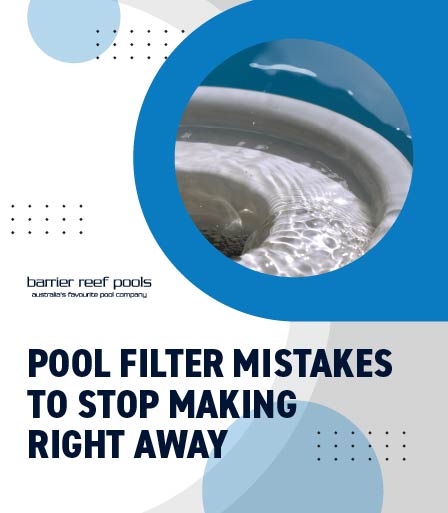
Common Pool Filter Mistakes
Using the Wrong Type of Filter for Your Pool
Not all filters are created equal—and not every filter is suitable for every pool. The three most common types are sand, cartridge, and diatomaceous earth (DE). Each has its own pros and cons, and they cater to different needs in terms of filter size, maintenance level, and type of debris commonly encountered. For instance, sand filters are generally affordable and easy to maintain but might not capture the smallest particles. Cartridge filters, on the other hand, provide finer filtration and require less water for cleaning, but they can be more expensive and need to be replaced more frequently. Diatomaceous earth filters offer the highest level of filtration, capturing even the tiniest particles, but they are the most costly and require more intensive maintenance.
Selecting a filter that doesn’t match your pool’s requirements can lead to inefficient filtration, impurities in the water, and ultimately, higher maintenance costs and potential damage to your pool system. Therefore, it’s crucial to carefully assess your pool’s specific needs and choose a filter that will provide the best performance and value.
Neglecting Routine Filter Maintenance
Ignoring the filter’s cries for help could lead to dire consequences. Without regular checks and maintenance, a filter’s efficiency decays. This gradual decline means it fails to remove debris and contaminants effectively. The result? Poor water circulation, decreased filtration capability, and ultimately, an unhealthy pool environment that could endanger your pool’s ecosystem and those who enjoy it. In the worst cases, this neglect can lead to algae growth, bacteria buildup, and the need for costly repairs or even complete replacement of the filtration system. Regular maintenance is crucial to ensure the longevity and cleanliness of your pool, providing a safe and enjoyable space for everyone.
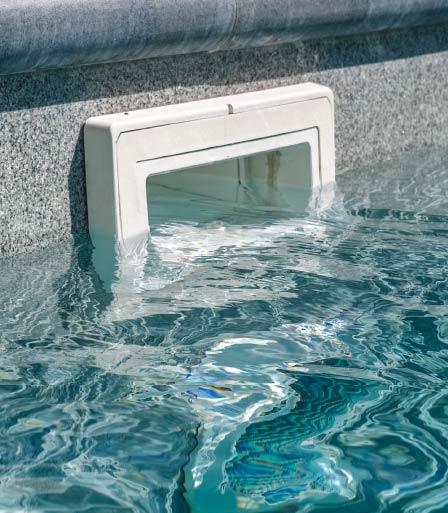
Overlooking the Filter’s Pressure Gauge
The pressure gauge is not just a passive observer; it’s a crucial indicator of the pool filter’s condition. When it shows a high reading, it could signal a clog or the need for backwashing due to excessive dirt and debris buildup. Conversely, a low reading might suggest a leak, an air pocket, or a blockage somewhere in the system. Regularly monitoring and interpreting these readings is essential for maintaining optimal pool health. Ignoring these vital signs can lead to significant issues, turning a minor maintenance activity into a costly and time-consuming pool disaster. Understanding what your pressure gauge tells you can save you time, money, and ensure a clean, functioning pool.
Failing to Backwash or Clean the Filter Regularly
Backwashing or cleaning your filter is essential to remove the accumulated dirt and debris. It’s like hitting the refresh button; without this crucial step, contaminants will just recycle through your pool, creating a cycle of murkiness and inefficiency that no swimmer will appreciate. Over time, the buildup of particles can clog the filter, reducing its effectiveness and potentially leading to more serious maintenance issues. Regular cleaning ensures that your pool stays clear, safe, and inviting for everyone to enjoy. So, make it a routine part of your pool care to keep everything running smoothly and sparkling clean.
The Impact of These Mistakes
Understanding the consequences of common pool filter mistakes highlights their severity. For instance, using an incorrect filter not only leads to increased energy costs due to inefficient filtration but also results in reduced water clarity, making the pool less inviting and potentially unsafe. Additionally, this mistake can cause rapid wear and tear of pool equipment, leading to costly repairs or replacements. Neglecting routine maintenance can create an environment conducive to algae growth and bacteria proliferation, which can cause health issues for swimmers. Furthermore, neglect can result in cloudy pool water—a visual and hygienic nightmare that detracts from the overall swimming experience and can be difficult and expensive to rectify. Regular checks and proper filter usage are crucial for maintaining a clean, safe, and enjoyable pool.
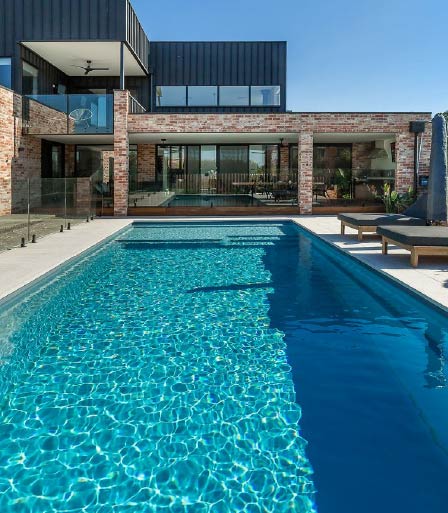
How to Correct and Avoid These Mistakes
Selecting the right filter requires carefully considering your pool’s size, the typical debris you encounter, and the maintenance time you can commit. For example, larger pools may benefit from more robust filtration systems, while pools located in leafy areas may need filters that handle heavy leaf debris efficiently. Consult with a pool professional to ensure you’re making an informed decision tailored to your specific needs.
Routine maintenance should be marked on your calendar—clean or backwash your filter as recommended by the manufacturer, which might be every few weeks or months depending on usage. Always follow proper guidelines for disposal of used water and waste to adhere to environmental regulations and local laws.
Learn to read your pressure gauge like a book. Familiarise yourself with your filter’s normal pressure range, and when it signals distress, don’t wait to take remedial action. High pressure usually indicates a dirty filter that needs cleaning, while low pressure might signify a blockage or leak. Regularly monitoring and adjusting your filtration system will ensure optimal performance and longevity of your pool’s equipment.
Conclusion
Evading these filter faux pas will set you on the path to a low-maintenance, high-enjoyment pool. Remember, a little attention goes a long way in preventing murky waters and ensuring your pool remains a sparkling jewel.
Keep an eye out for our upcoming topics on pool care, and never hesitate to jump back into the archives for related posts that keep your pool know-how fresh.
Happy swimming, and here’s to clear waters ahead!


